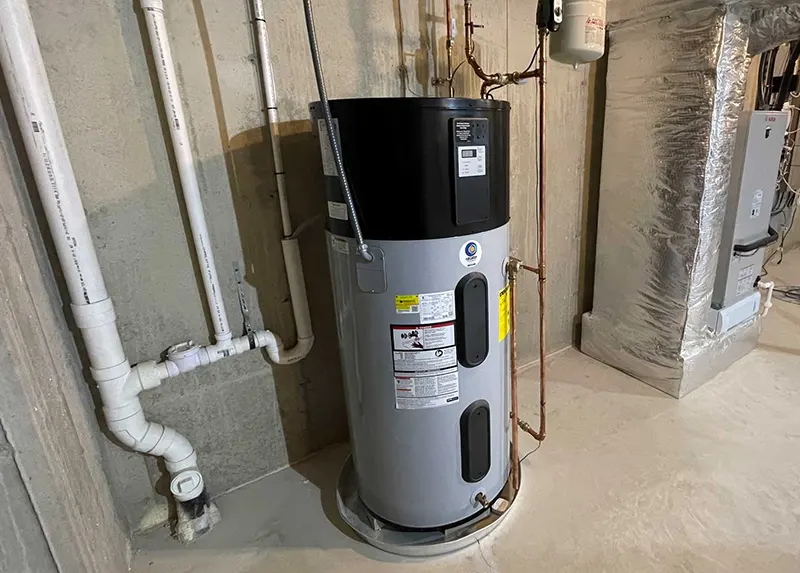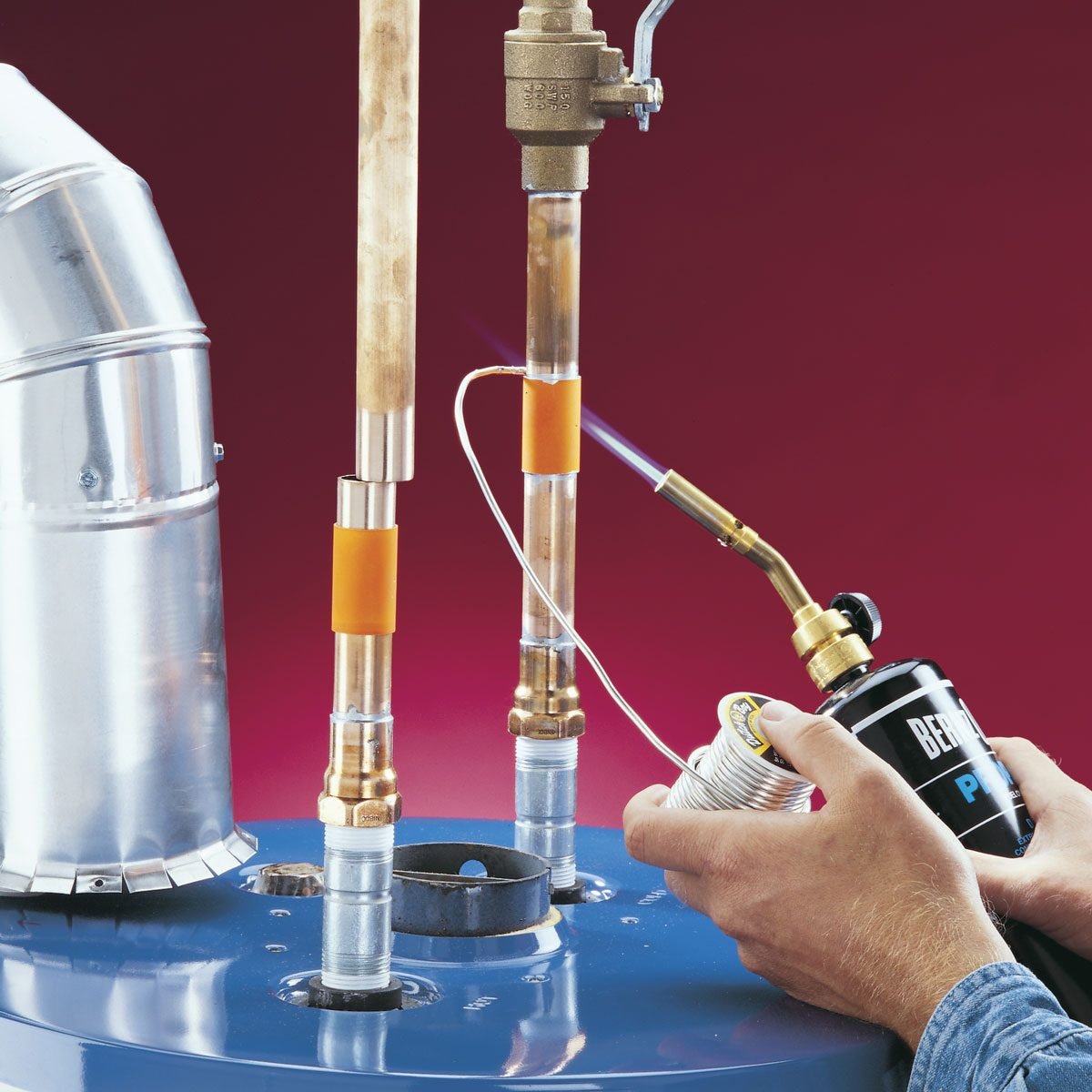Comprehensive Drain Cleaning Services to Ensure Healthy Plumbing
Comprehensive Drain Cleaning Services to Ensure Healthy Plumbing
Blog Article
Complete Guide to Water Heating UnitSetup and Substitute
Comprehending the complexities of water heating system installation and substitute is crucial for home owners looking for to make sure efficiency and integrity in their warm water supply. From choosing the appropriate type and size to carrying out a seamless setup process, several aspects should be considered to avoid common mistakes. This overview will certainly offer you with the needed actions and insights to browse the complexities of this home improvement job, while also stressing essential upkeep methods that can prolong the life of your system. As you explore these elements, you might discover yourself reassessing your current arrangement and identifying locations for enhancement.
Kinds Of Hot Water Heater
When taking into consideration water heating system installation and replacement, it is necessary to recognize the numerous types of water heating systems available in the market. One of the most typical kinds consist of storage tank hot water heater, tankless hot water heater, warm pump hot water heater, and solar hot water heater.
Storage tank hot water heater are traditional systems that save a specific quantity of hot water, making them readily offered when required. They are normally cheaper ahead of time however may sustain higher energy costs in time as a result of warmth loss. On the other hand, tankless hot water heater provide warm water on need, removing the need for storage. They are power reliable and can conserve space, but their preliminary prices are generally greater.
Heat pump water heating units make use of electricity to move heat from the air or ground to warmth water, providing substantial power savings but requiring even more space and specific installation conditions. Finally, solar hot water heater harness solar energy to warmth water, offering an environmentally friendly choice with potential long-term expense savings, although they typically call for a back-up system for over cast days.
Recognizing these choices ensures educated choices concerning installation and substitute, dealing with particular demands and preferences.
Selecting the Right Dimension
Choosing the proper dimension for a hot water heater is vital to guarantee ideal performance and performance. A system that is also tiny will certainly battle to satisfy home needs, bring about inconsistent warm water schedule and boosted energy intake. On the other hand, an extra-large hot water heater can lead to unneeded power waste and higher utility costs.
To establish the best dimension, take into consideration the home's height warm water usage. This can be determined based upon the variety of occupants and their typical hot water requirements. A household of 4 may need a water heating system with a capability of 50 to 80 gallons, depending on the usage patterns, such as synchronised showers and washing.
Additionally, assess the recuperation rate, which determines just how quickly a heating unit can replenish hot water after it has actually been made use of. For tankless designs, focus on the flow price, measured in gallons per minute (GPM), to guarantee it fulfills the home's synchronised need.

Setup Process Overview

Following, the old device has to be disconnected and eliminated, taking care to adhere to neighborhood codes and laws regarding disposal. When the old device is out, the brand-new hot water heater can be placed in location. This step entails useful link connecting the water supply lines, ensuring that all fittings are safe and secure and leak-free.
After developing water connections, it's important to link the power supply, whether electrical or gas, adhering to the producer's instructions thoroughly. As soon as all connections are made, the system needs to be loaded with water, and the power can be turned back on. Finally, it is necessary to look for leakages and ensure the hot water heater is operating properly prior to finishing More Help the setup process.
Common Installation Errors

Another frequent blunder is overlooking to follow neighborhood codes and regulations. Failing to abide by these standards can not only bring about safety threats but may also result in costly fines or the need for expensive reinstallation. Additionally, improper airing vent is a crucial issue. Inadequate ventilation can create harmful gas accumulation, presenting severe health and wellness dangers.
Inaccurate plumbing connections are additionally a prevalent blunder. Falling short to safeguard connections or using the wrong type of fittings can bring about leakages and water damage. In addition, ignoring the value of an appropriate drain pan can result in significant water damage if leaks do take place. Lastly, inadequate insulation of pipelines can result in warmth loss, reducing performance. By staying clear of these common setup mistakes, homeowners can ensure their water heating unit operates securely and successfully, taking full advantage of efficiency and durability.
Maintenance Tips for Durability
Appropriate upkeep of a water heating unit is crucial for its durability and ideal performance. Regular examinations and servicing can stop pricey repair services and prolong the appliance's lifespan. Begin by checking the temperature level setting; it needs to generally be set in between 120 ° F and 140 ° F for optimal power efficiency and safety and security.
Every six months, purge the container to get rid of debris accumulation, which can hinder home heating effectiveness and trigger corrosion. To do this, switch off the heater, connect a tube to the drainpipe valve, and allow the water run up until it is clear.
When they are rusted,Anode rods ought to be examined each year and changed. These rods aid protect against container corrosion by bring in harsh aspects in the water.
Additionally, this page check the stress alleviation shutoff routinely to ensure it is operating appropriately. This shutoff is essential for stopping excessive pressure build-up within the tank.
Lastly, take into consideration scheduling a professional upkeep check every few years for detailed inspections and maintenance. By adhering to these maintenance tips, property owners can considerably enhance the effectiveness, security, and lifespan of their hot water heater, ensuring dependable warm water for years to find.
Final Thought
In verdict, appropriate setup and maintenance of water heating units are critical for ensuring efficiency and longevity. By comprehending these essential facets, house owners can accomplish a dependable warm water supply while minimizing prospective problems associated to water heating system operation.
Understanding the ins and outs of water heating unit setup and substitute is critical for home owners seeking to make sure effectiveness and integrity in their warm water supply.Storage tank water heaters are conventional systems that store a details quantity of warm water, making them easily offered when required. In comparison, tankless water heating systems offer warm water on need, removing the demand for storage space. Selecting a water heating unit that is either also little or also huge can lead to ineffectiveness, resulting in insufficient hot water supply or excessive energy consumption.
By recognizing these vital elements, property owners can accomplish a reliable warm water supply while lessening prospective concerns related to water heating unit operation. plumber Denton.
Report this page